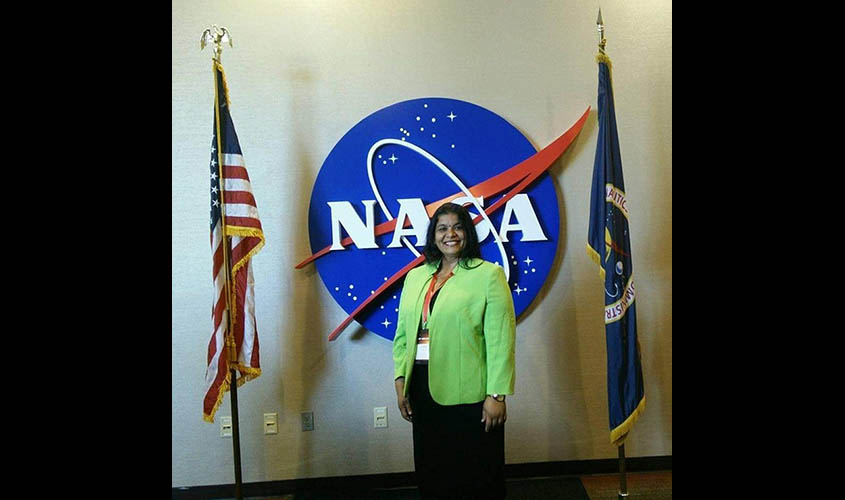The students from Chennai made Kalamsat V2, the world’s lightest satellite that went into space along with DRDO’s Microsat.
HYDERABAD: When minutes after the Indian Space Research Organisation (ISRO)’s PSLV-C44 rocket soared into skies at 11.39 pm on Thursday, Chairman Dr K. Sivan congratulated one and all in his teams, but importantly the students from Chennai, who made Kalamsat V2, the world’s lightest satellite that went into space along with DRDO’s Microsat and their leader Dr Srimathy Kesan.
Dr Srimathy Kesan, who runs Space Kidz India (SKI) from T. Nagar in Chennai, was the center of applause from across the country for her school boys who built the tiny cube satellite weighing just 1.2 kg. She went ecstatic with her mobile continuously getting calls and messages since Friday morning and told this newspaper on phone from Chennai that: “My dream comes true and I am overwhelmed.”
The Kalamsat V2 is built on a shoestring budget of Rs 12 lakh and ISRO came forward to launch it without any formal fee it collects from others. Made of light weight materials, Kalamsat’s primary aim is to reduce the weight of satellites and recycle their garbage after the expiry of their life. Kalamsat will be in the proper orbit at a height of around 250 km in the skies for about six to eight weeks.
Dr Kesan, who founded SKI in July 2010, has a mission in her life, to inculcate scientific temper among students and make them young scientists with “all round personality”. Her team who built Kalamsat includes 18-year-old Rifath Shaarook (chief technical officer and lead scientist), Abdul Basit, Hari Srinivasan, Yagna Sai, Vinay Bhardwaj, Gobinath, Vijaya Naryana and Kunal, all in their 20s. As an educator and social entrepreneur, Dr Kesan has roped in around 2,000 students so far and exposed them to space technology and aeronautics, by taking some of them to NASA in the US and other space centers in Russia and France. “If India were to become a developed super power, it has to harness space technologies well,” is her motto in her quest for a scientific bent in education.
Before that, her SKI launched an 8 kg cube satellite, SKISAT, made of aluminum alloys in 10x10x10 shape from Spacesport America, New Mexico, USA, on 25 August 2018. It was a partial success as it fell into the sea and NASA has taken up the task of locating its debris. However, that gave the students at SKI some lessons and ISRO agreed to launch their next venture, Kalamsat, free of cost. Now, Dr Kesan and team have plans to launch Vikramsat, a biological experimental satellite that will be launched soon so that its findings can be helpful for the upcoming Gaganyaan of ISRO. Dr Kesan believes and strives for the “Make in India” concept by gearing up school and college going students to take up space missions and aeronautics.
Dr Kesan is from Hyderabad and studied her initial education in St Francis and Sardar Patel College in Secunderabad. She says the students should be encouraged to take up arts and culture too. Students of SKI took part in the cultural show of the 2012 London Olympics. SKI would promote space technology among the students on a large scale in the days to come.

